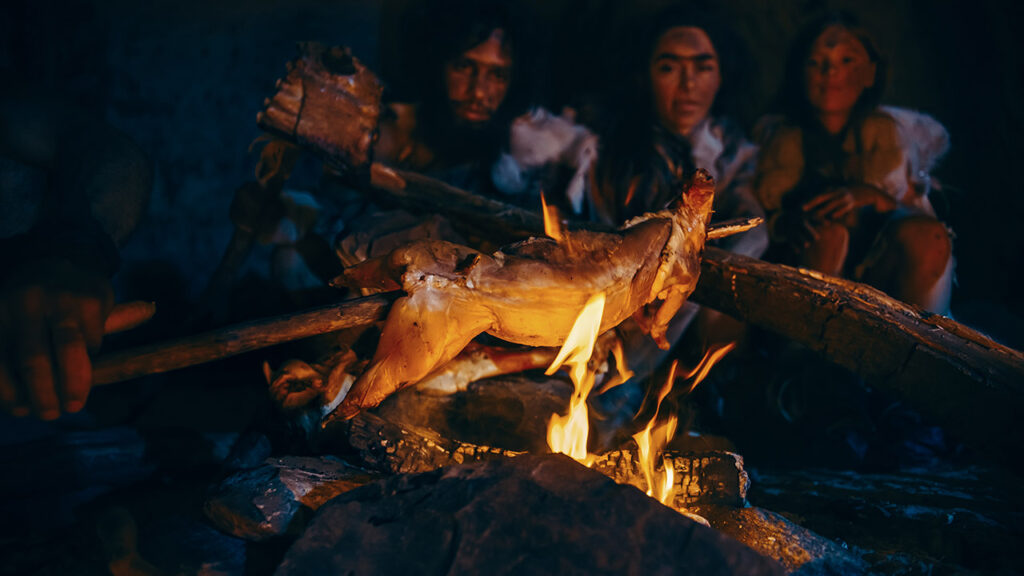WE ARE TAKING ORDERS UNTIL 18/12 AND THEN THE WAREHOUSE WILL BE CLOSED UNTIL 31/01/2025
WE ARE TAKING ORDERS UNTIL 18/12 AND THEN THE WAREHOUSE WILL BE CLOSED UNTIL 31/01/2025
The consequences of cooking food were shocking. The intestines shrank enormously by virtue of a diet of more easily digestible food. As a consequence, there were changes in the anatomy itself. Think of the disappearance of the hair that we needed to defend ourselves from the cold: I jokingly tell my students that it was the first great crisis of a profession: the beautician! The teeth have thinned and settled into a position of greater balance between jaw and jawbone for better chewing that no longer involves crushing animal shells and bones or softening tendons. Heat makes it easier for us to open, cut or crush hard foods.
As a result, the brain has increased in size and the energy saved in faster digestion has been used for the development of cognition, using a large amount of glucose, which makes the brain the most “greedy” organ. Although the brain accounts for only 2.5 % of our weight, it is responsible for 20 % of energy consumption at rest. But there is one aspect that is little appreciated: cooking has increased the amount of energy our bodies obtain from food. So we couldn’t eat anything but meat, but cooked meat: “Fire is largely responsible for our reproductive success, making us the most effective “pest” in the world”. Fire also made it easier to wean and feed the elderly.

This transformation of the nature of meat and vegetables saved an enormous amount of time: a chimpanzee, a ruminant, still spends much of the day chewing, chewing … and ruminating to make cellulose digestible. Richard Wrangham (an American anthropologist and primatologist – his book The Intelligence of Fire 2014 is a must-read) claims that up to four hours were saved, time that could have been devoted to other activities, including socialising, the development of ties and affections, and the division of roles: the man out hunting, the woman at “home” looking after the family and cooking. Let’s think about what it meant to be able to climb down from the plants, to become bipeds, to be able to shelter inside a cave, to be safe (the lit fire kept other predators away), to warm oneself, to defeat the fear and terror of the dark which is at the origin, if you think about it, of all the rituals of light and fire at Christmas time. All our illuminations are nothing more than a ritual to exorcise this atavistic fear of the dark at the darkest time of the year, the winter solstice. In short, a gift from the gods!

Food historian, writer, guest and consultant of Geo & Geo (Rai Tre)
We sell our products throughout Europe. If you are interested in our products outside the EU, please contact us via email or telephone call.
2020 © Copyright – Fonderia Finco s.r.l. – Via Palladio 6 – 35010 Marsango di Campo S. Martino – Padova (ITALY) – Tel. +39 049 552066 – Reg. Imp. PD n. 02004550287 – Cap. Soc: € 110.000,00